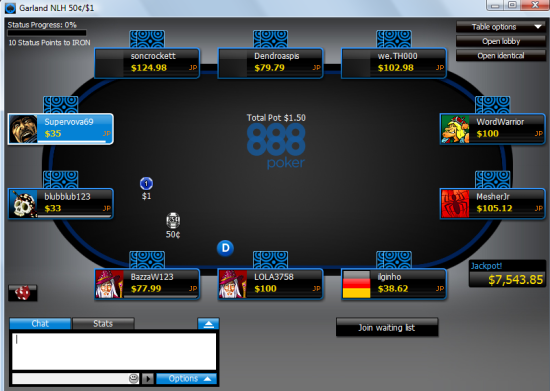Member Comments
No comments so far
 Recently, an article appeared on Inside Poker Business featuring an explanation from PokerTracker executive Steven McLoughlin about how software can benefit the poker community. With debates raging on as to whether software enhances the gap between fish and sharks, McLoughlin's enlightened thoughts could be eye opening to readers. With that in mind, let's take a look at a few of the highlights.
Recently, an article appeared on Inside Poker Business featuring an explanation from PokerTracker executive Steven McLoughlin about how software can benefit the poker community. With debates raging on as to whether software enhances the gap between fish and sharks, McLoughlin's enlightened thoughts could be eye opening to readers. With that in mind, let's take a look at a few of the highlights.
Read the entire article by clicking here and heading over to Inside Poker Business.
McLoughlin penned the piece and opened by saying that the marketing strategies of many online poker sites are focused on roping in new players. Yes, these players broaden the total poker ecosystem by increasing the number of participants. However, according to McLoughlin, "The path of least resistance is the conversion of existing recreational players into active players via retention, and marketing to the millions of people who were former casual or recreational players who the industry has lost."
How can this process occur? How can recreational players become active players?
McLoughlin pointed out that the use of social media could bring players back to the poker community, or make them more active. He pointed out, "PokerTracker 4 was built with this in mind. Our users can automate the creation of a hand from our built-in replayer, which is branded by the poker room, send it to YouTube, and share the results on Facebook, Twitter, e-mail, or even post them to an online forum complete with embedded SEO-heavy links back to the site the hand was played at."
In sales, we call this philosophy "reach one to reach many." If you can reach one person, you can reach everyone that person knows, making your job as a marketer much easier. This is why many tourist attractions, for example, focus so heavily on group sales. If you can reach one decision-maker, then thousands of potential customers could be walking through your gates. In poker, players can serve as major advocates for rooms.
McLoughlin emphasized that PokerTracker plays right into the social experience: "The use of PokerTracker encourages social communication with other players, which in turn sells the poker 'lifestyle.' We're under no illusions, poker tracking software is not the final answer to attracting players, but it is one of the many optional parts of a bigger picture solution."
Poker software won't suddenly make players profitable. After all, there's no "magic pill" in our industry that can turn poker fortunes around. However, as McLoughlin asserted, "We will continue to find that the aspirational players who are most interested in poker will gravitate toward using tracking tools like PokerTracker, but this does not make that player a shark. This player type is most likely a breakeven player that with enough time invested, and a little skill learned along the way, will someday become a winning player – if he is one of the lucky ones that survives that long."
Several pieces of software, including PokerTracker, can run around $100 for a license, so players investing in these tools are taking a leap of faith in some respects. Will their gamble be worth it in the end? Will a recreational player even see value in this purchase?
PokerTracker is one of the most popular pieces of software we've reviewed on our site. The commercial version of its fourth incarnation is due out sometime in the near future, although the official release date is not yet known. PokerTracker developers recently added support for Canadian Dollar games, reflecting the balkanization of the online poker industry in general. PokerTracker officials work with over 20 online poker networks and put a premium on development.
We'll keep you posted on the latest changes to PokerTracker right here on PokerSoftware.com.
No comments so far